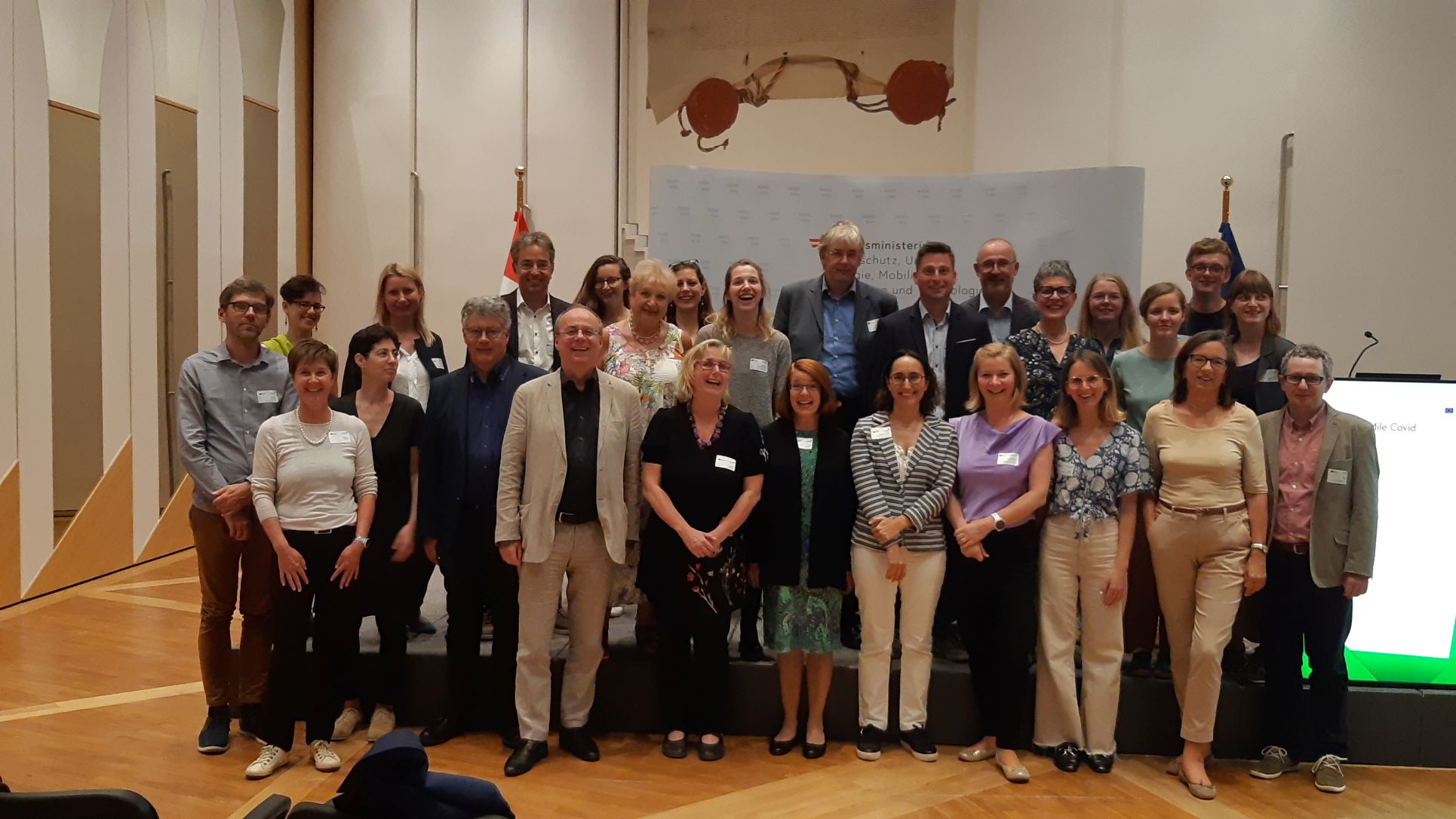
Last Mile Final Conference
On the 14th of September, the LAST MILE Final Conference to conclude the LAST MILE project and its extension on the effects of COVID-19 took place.
Public transport is a challenging task in many hinterlands due to different factors that make the operation of regular lines difficult. Beyond that, locations with tourist frequentation are facing a variation in demand depending on seasons.
Experiences have shown that a demand-responsive transport system (sharing/pooling/public), embedded in the trunk net of regular public transport, is a thankful enhancement in many cases: to cover the "last mile" in the travel chain of tourists and to provide for the inhabitants an alternative to car use for their daily ways.
While various operational models of intermediate services have been created and tested in several foregoing projects, operators are still confronted with institutional barriers and/or the sustained financing in the long run.
Capitalizing on foregoing research and development work, regions create new and tailor-made solutions on the basis of the experiences. Integrated solutions tailored to multiple user with target-group oriented information tools, interlacing with main public transport lines and hubs and introducing low-emission and energy-efficient vehicles, shall lead to sustainable and financeable regional mobility systems. Through the interregional exchange, a synthesis and recommendations concerning the implementation of sustainable demand-responsive transport systems had been developed. Policy recommendations and thereby catapulted policy dialogue processes shall facilitate the realization of low-threshold mobility services in the long run. The main results of the project can be found in the brochure.
Benefits lie in the positive environmental effect (both in destinations and origins=urban areas), in the improved accessibility for residents and in the regional economy (tourism as an important factor in rural areas), which are shown by the good practices visited.
After the end of the project in 2020 6 project partners started November, 3rd with a prolongation of LAST MILE. As the COVID-19 crisis impacted severely many of the identified FTS, six partners from 5 regions (AT, BG, ES, LU, SK) want to identify the effects on FTS the COVID-19 crisis had on them and search for good practices for the current situation and possible challenges in the future. Find a summary here.
€1,882,979.00
Low-carbon economy
Austria has only one general structural funds programme ("Investments in Growth and Employment Austria 2014-2020 - Operational Programme for the use of the ERDF funds") – agreed between federal state and the provinces. The Managing Authority ist located at federal level, whereas each province acts as an intermediary (funding) body.
The ERDF OP (Investment priority 9d for the province of Tyrol) is meant to give communities the ability to develop their region. Within this instrument, regions have the possibility to use structural funds for regional development. The basis for the developement is a strategy wich defines certain priorities, two of these priorities (ERDF) aim at migitating climate change (and to adapting to it), and at cooperation between cities and their surrounding. In this context, the development of mobility solutions is an integrative building block for overall regional development and therefore it is necessary to pursue mobility projects within the CLLD (community-led local development) approach.
Main objective of IROP is to contribute to the promotion of quality of life, to ensure sustainable provision of public services across the country, to improve public transport infrastructure. This will be beneficial for a balanced and sustainable regional development, as well as economic, territorial and social cohesion of Slovak regions, cities and municipalities.
The IROP will be influenced by proposing such activities within the action plan that will be in line with IROP and could be financed by it.
The ERDF OP "Regions in Growth" 2014-2020 (OPRG) through which the Regional Plans are implemented, is aiming at promotion of growth and jobs by improving business environment and connectivity and enhancing local potential. Measures for development of regional tourism improving transport infrastructure and urban environment are foreseen, but provisions for the "Last Mile" issue are missing.
Special attention is paid to specific objective 2: “Improving the transport connectivity at national level by the development of the road infrastructure with regional importance”, and specific objective 3: “Developing the relations “city-region” and improving the access to cultural and historical values, the logistics centres, the places of recreation and tourism, the industrial and business zones in the regions”.
In the OP, measures for sustainable mobility, especially on the "last mile" are principally eligible according to the programme`s investment priorities, but no projects in this veine have yet been proposed nor implemented. "Last mile" has not particularly been considered in before implemented and funded projects during the period 2007-2013. This is the reason to propose this project in order to allow regional and local authority to be able to elaborate relevant action plans for sustainable mobility and ask for funding for their implementation.
One of the priorities stablished within Cataluna ERDF 2014-2020 OP is priority 4 "Promote the low-carbon emissions economy to all sectors". Moreover, it is also stablished the specific goal 4.5.1 "Promote Sustainable Urban Mobility: clean urban transport, public transport, urban-suburban-rural connections, road network improvement, cycling, walking, electromobility and development of clean energies".
In this sense, the LAST MILE objectives and goals suit very well with the specific goal 4.5.1, as the development of flexible transport systems in tourist regions with low residential population density and the broad stakeholder work will help to integrate the "last mile" in relevant transport and tourism strategies/regional development instruments as well as in the regional funding priorities in the long term.
The LAST MILE aim is to enable multimodal travel chains based on main public transport lines for tourists to access holiday destinations and for residents to improve their accessibility in public transport within their places of residence and of the centers/cities where they find workplaces and different upper-level services. Therefore, the specific 4.5.1 goal of ‘Promote Sustainable Urban Mobility’ is completely covered.
Within the LAST MILE project, the regional government of Cataluna wants to propose well prepared mobility measures with a focus on the last link of the travel chains ("last mile") to be supported by structural funds in the frame of this programme.
The MoDu strategy describes 4 political objectives:
1. Improve links between territorial development and mobility: Principle of "city of short distances", better mix of the functions housing, work and leisure, compact urban development, reduction of (individual) motorized traffic at its source
2. 25% of daily trips by soft mobility: Reduce motorized transport by increasing the share of soft mobility in the daily paths and especially in short distances (at least 25% of daily trips by soft mobility by 2020)
3. 25% of motorized trips by public transport: Offer attractive transport prompting users to perform many of their motorized trips by pt (at least 25% of daily motorized trips by pt)
4. Promote alternative use of the car: parking management, P&R, carpooling or carsharing - in combination with an attractive public transport offer;
The main focus of the MoDu strategy lies on the daily traffic (residents, commuters). To gain a more integrative viewpoint, LAST MILE will provide a profound analysis of the regional situation and analyse the real needs, in particular the specific tourists’ needs.
These reflexions will be complementary to the national reflexions. The action plan will propose possible innovative and sustainable solutions which could be integrated in the national scheme in order to better fulfil the aims 2+3. Actions shall also help to sensitise the public (residents and tourists) about the mobility issue and encourage them to make a more sustainable choice.
Spatial Management Plan of Westpomeranian Voivodeship is a regional spatial policy instrument managed by Regional Office for Spatial Planning on behalf of the Regional Board; 3 major purposes:
• provide information about the region, i.p. its spatial conditions and directions for development,
• determine the spatial policy of the region, in line with the nat. and reg.development strategies,
• coordinate elements of spatial development resulting from international obligations.
It defines goals for management of space in the region and development rules, and determines long-term directions for spatial policy. It is a basis for elaborating regional OPs and conclusions pertaining to the regional spatial policy. Local governments need to take into consideration provisions of the Plan in their planning practice.
For West Pomerania it is crucial to strengthen the potential of tourism as main sector of regional economy. On the other hand, demographic changes in the region force the regional selfgoverment to meet different requirements of older people and young families, who are two strong groups of residents. Their exclusion from social life thought inefficient transportation system and lack of accessibility to important and vivid parts of the region is the main challenge of regional developement. It requires multi-sectoral analysis and measurable components to be able to invest financial tools in the region (e.g. Regional ERDF OP) in multifarious smart way.

On the 14th of September, the LAST MILE Final Conference to conclude the LAST MILE project and its extension on the effects of COVID-19 took place.
Review of the Study Visit in the Upper Sure Nature Park

exchange about the decrease or increase of FTS/PT during the COVID Crisis

interregional online exchange about the good practicses
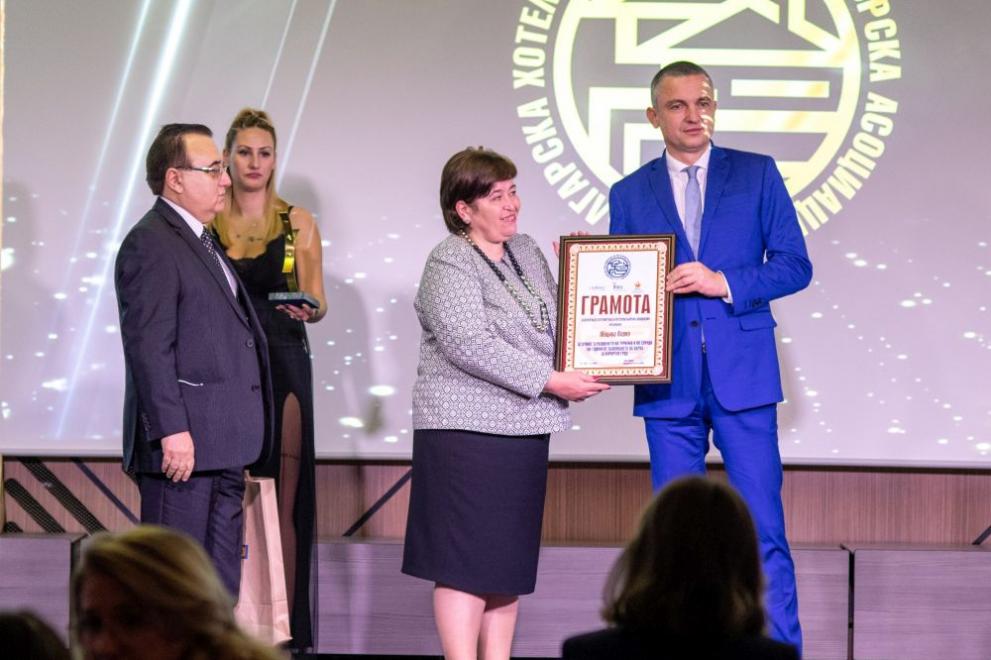
Varna received two prestigious awards: the Award for tourist destination of the year and the Award for contribution to the development of sustainable tourism an

After the end of the project in 2020 6 project partners started November, 3rd with a 3rd phase. In focus: the effects of the COVID-19 crisis on FTS.
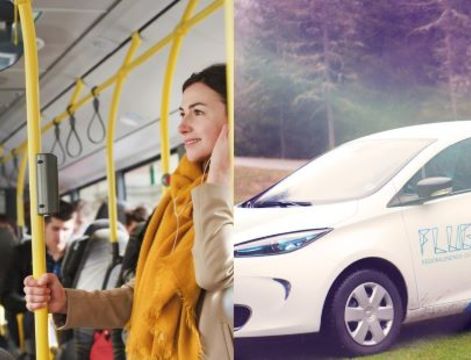
Regional policy instrument involves LAST MILE results to provide funding opportunities for mobility projects in rural areas.
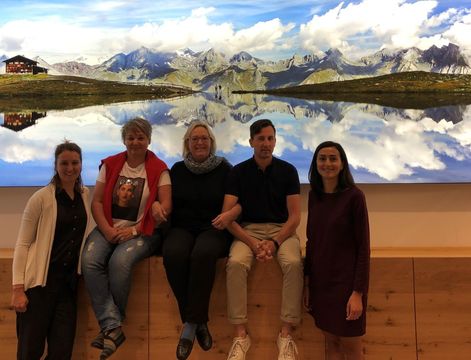
A focus group with tourism mobility purpose is working on mobility trainings and further marketing activities.

The board game "Mobiliada" was created to promote the use of public transport and mobility initiatives of the region.
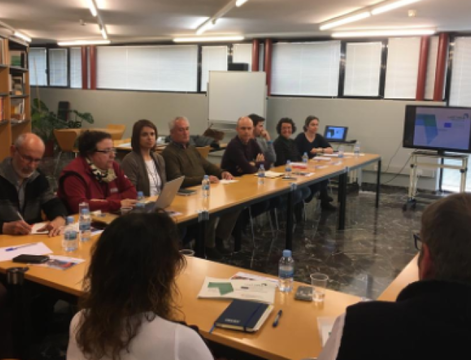
A successful experience with the collaboration of stakeholders in Catalonia